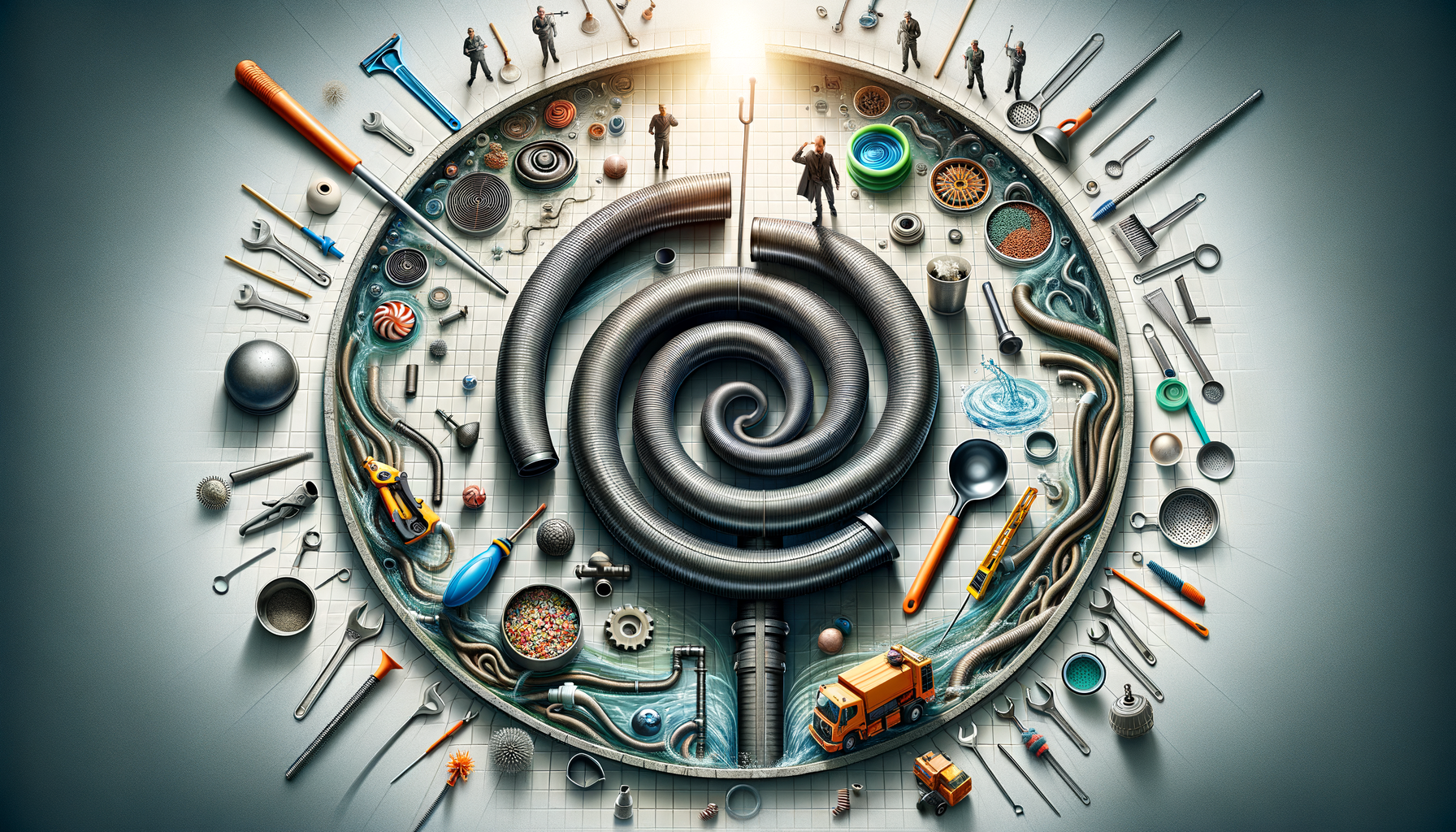
The Essential Guide to Drain & Pipe Cleaning: Ensuring Smooth Flow
The Importance of Regular Drain and Pipe Maintenance
In the hustle and bustle of daily life, it’s easy to overlook the hidden network of pipes and drains that keep our homes running smoothly. However, neglecting this crucial system can lead to costly repairs and potential health hazards. Regular maintenance of drains and pipes is essential for several reasons. Firstly, it prevents blockages that can cause water to back up, leading to unpleasant odors and potential water damage. Secondly, it ensures the efficient flow of water, which is vital for a healthy home environment.
Blockages are often caused by a buildup of grease, hair, soap scum, and other debris. Over time, these materials can accumulate, reducing water flow and increasing the risk of clogs. Regular cleaning helps to remove these materials before they become a problem. Additionally, maintaining clean pipes can extend the lifespan of your plumbing system, saving you money in the long run.
Moreover, a well-maintained drainage system can help prevent the growth of mold and bacteria, which thrive in damp environments. This is particularly important for households with young children or individuals with allergies. By keeping your drains and pipes clean, you are contributing to a healthier living space.
Common Causes of Clogged Drains
Understanding what causes clogs can help in preventing them. Common culprits include hair, soap, and grease, which can accumulate over time. Hair is particularly notorious for causing clogs in bathroom drains. It easily tangles and combines with soap scum to create stubborn blockages. In kitchens, grease and food particles are the main offenders. When grease cools, it solidifies and sticks to the walls of pipes, trapping food particles and other debris.
Other causes of clogs include foreign objects accidentally flushed down the toilet, such as wipes, sanitary products, and small toys. These items do not break down easily and can cause significant blockages. In outdoor drains, leaves, dirt, and other natural debris can build up, especially during the fall season, leading to clogs that can affect the entire drainage system.
Preventive measures include using drain guards to catch hair and debris, avoiding pouring grease down the sink, and being mindful of what is flushed down the toilet. Regular inspection and cleaning can help identify potential issues before they become major problems.
Effective Methods for Cleaning Drains and Pipes
There are various methods available for cleaning drains and pipes, ranging from simple home remedies to professional services. One popular DIY method is using a mixture of baking soda and vinegar. This natural solution can help break down minor clogs and deodorize drains. Simply pour baking soda down the drain, followed by vinegar, and let it sit for a few minutes before flushing with hot water.
For more stubborn clogs, a plunger can be an effective tool. By creating a vacuum, a plunger can help dislodge blockages and restore water flow. Another option is a drain snake, a flexible tool that can reach deep into pipes to remove debris. For serious clogs, it may be necessary to call a professional plumber who can use advanced techniques such as hydro jetting, which involves using high-pressure water jets to clear blockages.
Regular maintenance, such as monthly cleaning with baking soda and vinegar, can help keep your drains and pipes in good condition. Additionally, being mindful of what goes down your drains can prevent future clogs.
Signs You Need Professional Drain Cleaning
While many clogs can be managed with DIY methods, there are certain signs that indicate the need for professional help. Slow draining water is a common sign of a developing clog. If water takes longer than usual to drain from sinks or tubs, it may be time to call a plumber. Frequent clogs are another indicator. If you find yourself dealing with clogs regularly, it could be a sign of a more serious underlying issue.
Unpleasant odors emanating from drains can also suggest a blockage or buildup of debris. These odors are often caused by trapped food particles or grease that has started to decompose. Additionally, gurgling sounds from pipes can indicate air trapped by a clog, disrupting the normal flow of water.
If you experience any of these signs, it is advisable to seek professional assistance. A plumber can diagnose the problem and provide a long-term solution, ensuring your drainage system operates efficiently.
Preventive Measures for Long-Term Drain Health
Prevention is always better than cure, and this is particularly true for drain and pipe maintenance. Implementing a few simple preventive measures can help maintain the long-term health of your drainage system. Start by using drain guards to catch hair and debris before they enter the pipes. This is especially important in bathrooms where hair is a common cause of clogs.
In the kitchen, avoid pouring grease down the sink. Instead, collect it in a container and dispose of it with your regular trash. Additionally, be cautious of what you dispose of in your garbage disposal. Items like coffee grounds, eggshells, and fibrous vegetables can cause blockages.
Regularly clean your drains with a natural solution of baking soda and vinegar to prevent buildup. This simple routine can help keep your pipes clear and free-flowing. Finally, schedule regular inspections with a professional plumber to catch potential issues early. By taking these preventive steps, you can ensure your drains and pipes remain in excellent condition for years to come.